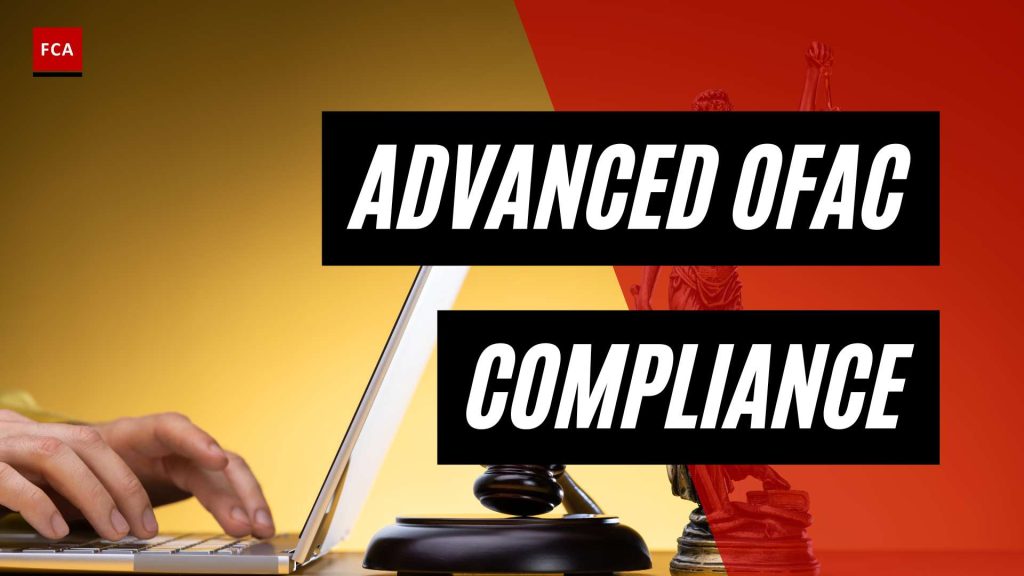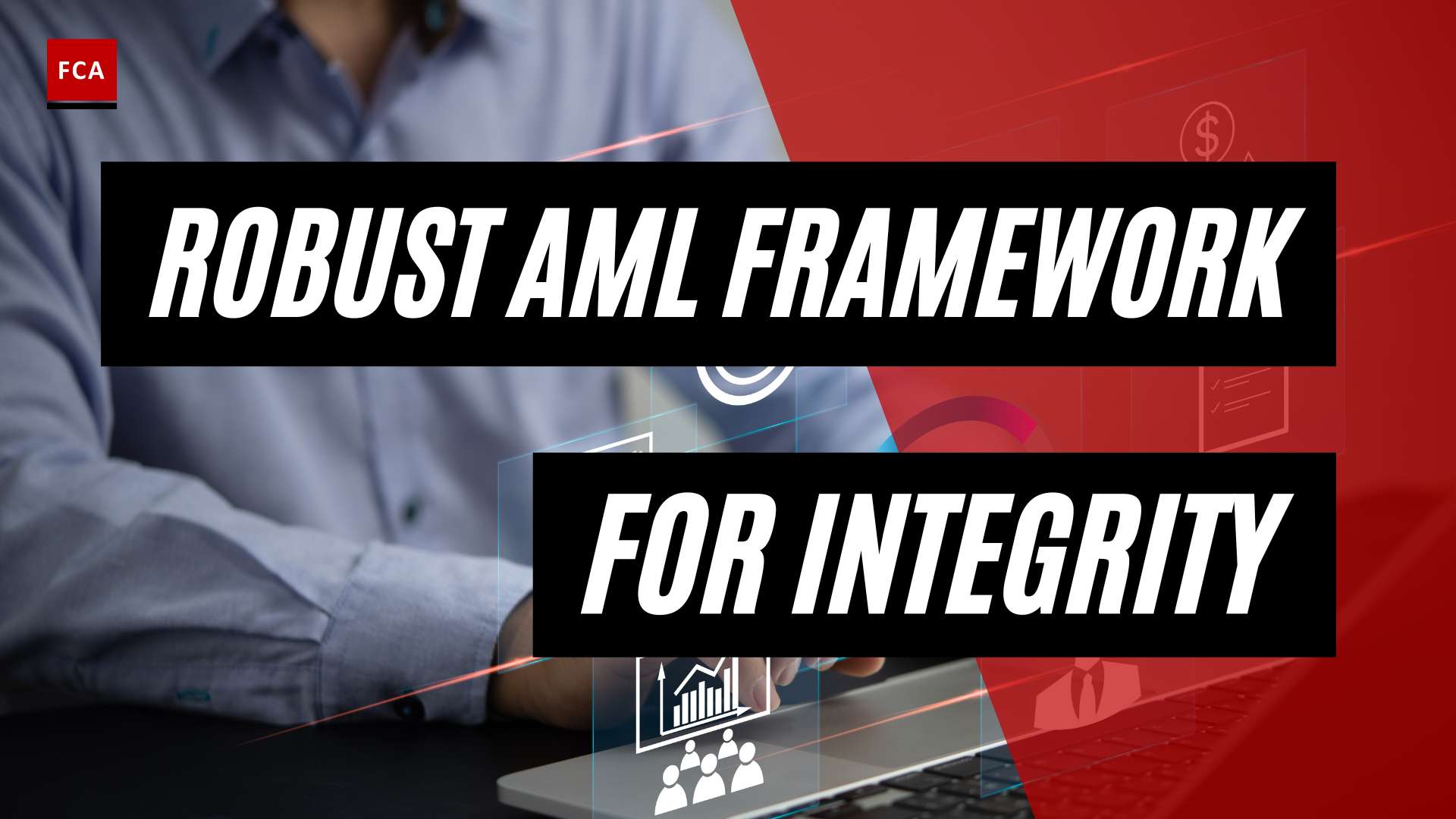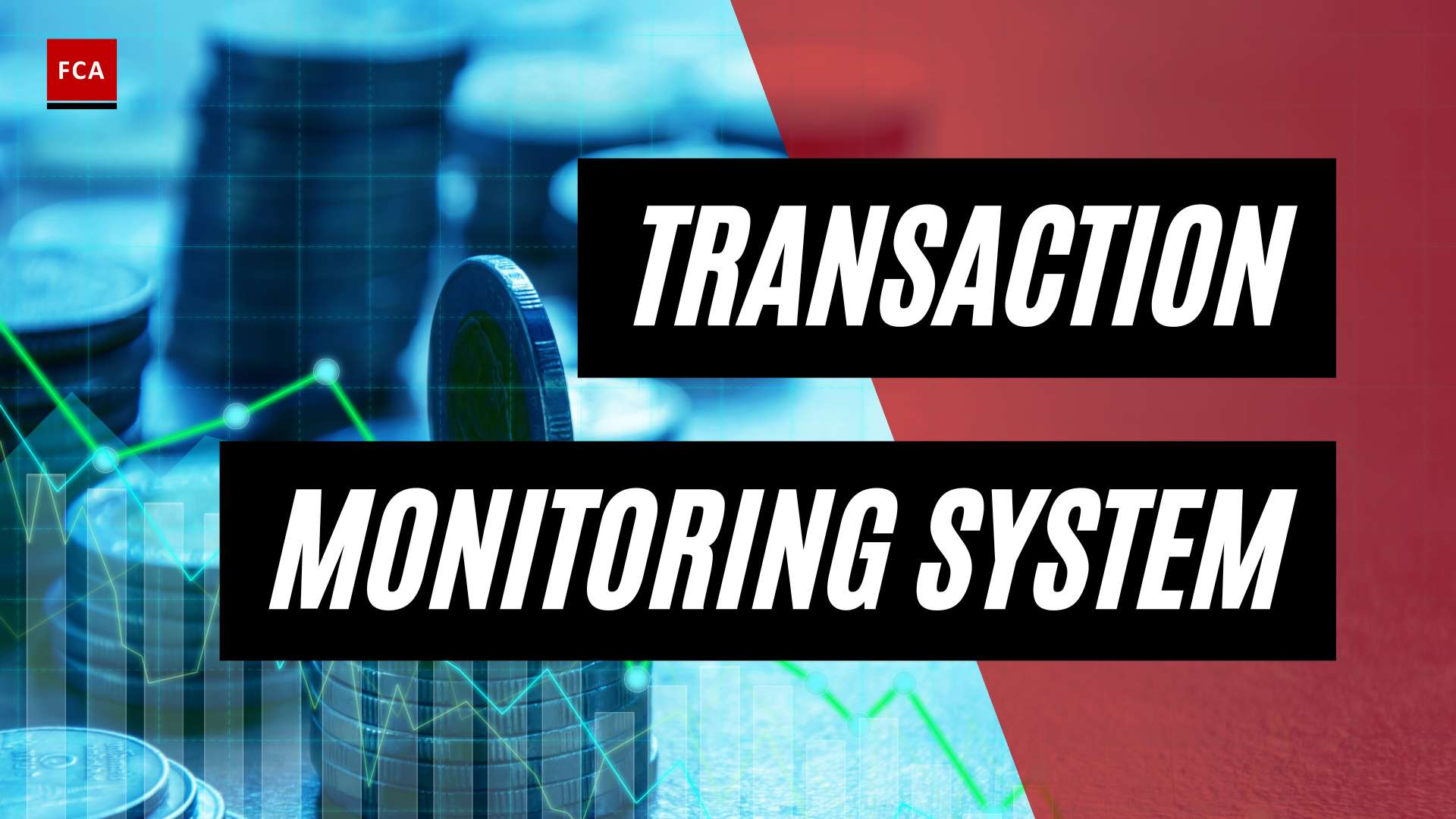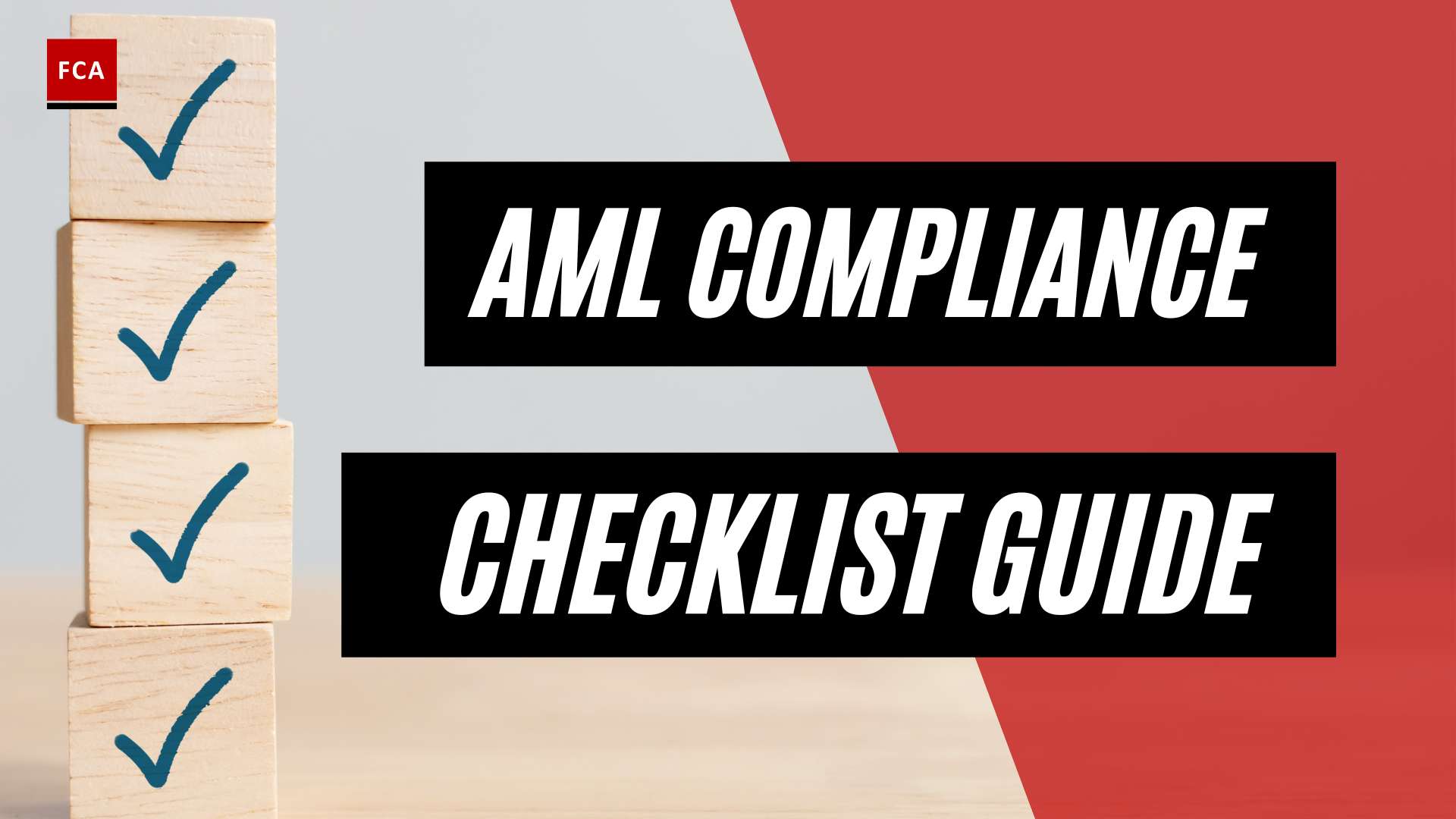Understanding OFAC Compliance
Compliance with the regulations set forth by the Office of Foreign Assets Control (OFAC) is essential for organizations operating within the United States. Failure to adhere to OFAC compliance policies can lead to severe consequences, including fines, penalties, criminal prosecution, and reputational damage. In this section, we will explore the basics of OFAC compliance, including what OFAC is, the importance of compliance, and the consequences of non-compliance.
What is OFAC?
The Office of Foreign Assets Control (OFAC) is an agency of the U.S. Department of the Treasury. It administers and enforces economic and trade sanctions based on U.S. foreign policy and national security goals. OFAC maintains a list of individuals, companies, and countries subject to sanctions, known as the OFAC sanctions list. Organizations must comply with OFAC regulations to ensure they do not engage in transactions or dealings with sanctioned individuals or entities.
Importance of OFAC Compliance
Compliance with OFAC regulations is crucial for organizations to avoid legal and financial repercussions. By adhering to OFAC compliance policies, organizations demonstrate their commitment to ethical business practices, risk management, and the prevention of illicit financial activities. Maintaining OFAC compliance also safeguards organizations from reputational damage that could result from association with sanctioned individuals or entities.
Organizations are responsible for implementing an effective OFAC compliance program that aligns with regulatory requirements and industry best practices. This includes tailoring compliance programs to their specific needs, conducting risk assessments, and providing employee training and education to ensure awareness of sanctions regulations.
Consecuencias del incumplimiento
Non-compliance with OFAC regulations can have serious consequences for organizations. Violations can result in civil and criminal penalties, including fines, imprisonment, and forfeiture of assets. The fines for OFAC violations can be substantial, with civil and criminal penalties that can exceed several million dollars. The exact penalties vary depending on the specific sanctions program and the severity of the violation. It’s important to note that civil penalties are subject to annual adjustments based on the Federal Civil Penalties Inflation Adjustment Act of 1990 (OFAC – U.S. Department of the Treasury).
In addition to financial penalties, non-compliance with OFAC regulations can lead to reputational damage and loss of business opportunities. Organizations that fail to maintain OFAC compliance risk significant harm to their brand image and integrity. Therefore, it is essential for organizations to prioritize OFAC compliance and implement robust compliance policies to mitigate the risk of non-compliance.
Understanding the importance of OFAC compliance, organizations should strive to establish comprehensive compliance programs, conduct regular screenings and monitoring, utilize software tools to streamline compliance efforts, and perform due diligence on business partners. By doing so, organizations can effectively navigate the complex landscape of OFAC regulations and mitigate the risk of non-compliance.
Building an Effective OFAC Compliance Program
To ensure compliance with OFAC sanctions and mitigate the risk of violations, companies need to establish and maintain an effective OFAC compliance program. This program should be tailored to the company’s specific risk profile and incorporate measures to address potential compliance issues. The key elements of an effective OFAC compliance program include tailoring compliance programs, conducting risk assessments, and providing employee training and education.
Tailoring Compliance Programs
According to OFAC, compliance programs should be tailored to a company’s risk profile. This means that companies should review and assess their compliance policies and procedures and update them when necessary. The program should be designed to address the specific risks associated with the company’s product offerings, customer base, suppliers, geographic location, and other relevant factors. It should also consider the involvement of third parties, such as screening partners or customers.
By tailoring the compliance program, companies can focus their efforts on the areas that pose the greatest risk and allocate resources accordingly. This approach allows companies to develop targeted controls and measures to address specific compliance challenges.
Realización de evaluaciones de riesgos
Risk assessments play a crucial role in an effective OFAC compliance program. Companies are expected to perform risk assessments to identify potential OFAC violations and take steps to mitigate these risks. The risk assessment should be comprehensive and consider various factors related to the company’s operations and business environment.
According to OFAC, risk assessments should take into account the company’s product offerings, customer base, suppliers, geographic location, and other relevant factors. It should also consider the involvement of third parties, such as screening partners or customers. By conducting a thorough risk assessment, companies can identify areas of potential vulnerability and implement appropriate controls to mitigate those risks.
Capacitación y educación de los empleados
Effective employee training and education are essential components of an OFAC compliance program. Companies are encouraged to provide regular training to their employees on OFAC compliance requirements and best practices. The training program should be tailored to the company’s specific risks and business operations.
Employees should be educated on the company’s policies and procedures related to OFAC compliance, as well as the potential consequences of non-compliance. They should also receive guidance on how to identify and respond to potential violations promptly. By ensuring that employees are knowledgeable about OFAC regulations and their responsibilities, companies can foster a culture of compliance and reduce the risk of violations.
Additionally, companies should maintain documentation of the training provided to employees as part of their compliance records. This documentation serves as evidence of the company’s commitment to compliance and can be valuable in demonstrating compliance efforts to regulators, if necessary.
By focusing on tailoring compliance programs, conducting risk assessments, and providing employee training and education, companies can build an effective OFAC compliance program. Implementing these key elements helps ensure that the company is equipped to identify and mitigate potential compliance risks, enhance regulatory compliance, and safeguard the company’s reputation and integrity.
Key Elements of OFAC Compliance Policies
To ensure effective compliance with Office of Foreign Assets Control (OFAC) sanctions, organizations must incorporate key elements into their compliance policies. These elements include regular screening and monitoring, utilizing software tools, and due diligence on business partners.
Regular Screening and Monitoring
Regular screening and monitoring are crucial components of an effective OFAC compliance program. Organizations should check the OFAC sanctions list on a regular basis to ensure compliance with sanctions laws and avoid costly penalties. The frequency of these checks may vary depending on the organization’s risk profile, with monthly checks being the gold standard for most organizations (ProviderTrust).
By conducting regular screenings, organizations can identify any individuals, entities, or countries that are subject to OFAC restrictions. This allows them to take necessary actions to prevent prohibited transactions and ensure compliance with OFAC regulations.
Utilizing Software Tools
Many organizations choose to utilize software tools that automate the screening process, streamlining compliance efforts and reducing the risk of oversight or human error in OFAC checks. These software tools can help organizations efficiently scan their customer databases against the OFAC sanctions lists. By automating the screening process, organizations can enhance accuracy, save time, and facilitate a more robust compliance program (ProviderTrust).
When selecting software tools, organizations should consider their specific needs and seek guidance from other banks and vendors to assess the most suitable option. Commercially available software packages can assist in compliance by providing advanced search capabilities and ensuring comprehensive screening against the OFAC sanctions lists.
Due Diligence on Business Partners
Conducting due diligence on business partners is another essential element of an effective OFAC compliance policy. Organizations should thoroughly vet their business partners, including suppliers, customers, and third-party intermediaries, to ensure they are not involved in any prohibited activities or transactions.
Due diligence on business partners involves conducting background checks, reviewing relevant documentation, and assessing the business’s reputation and integrity. This process helps organizations identify any potential risks and ensure that they are not engaging in transactions with individuals or entities on the OFAC sanctions list.
By integrating due diligence procedures into their compliance policies, organizations can mitigate the risk of unwittingly entering into prohibited transactions and maintain a strong culture of compliance.
By incorporating these key elements into their OFAC compliance policies, organizations can enhance their ability to identify and prevent transactions with sanctioned individuals, entities, or countries. Regular screening and monitoring, utilization of software tools, and due diligence on business partners are essential components of a comprehensive compliance program. Compliance with OFAC regulations is crucial for organizations to safeguard their reputation, integrity, and financial well-being.
OFAC Compliance Best Practices
To ensure effective compliance with OFAC sanctions and maintain a strong regulatory framework, organizations should implement best practices to elevate their OFAC compliance policies. This section highlights three essential best practices: keeping up with regulatory changes, ongoing auditing and review, and the importance of a prompt response to potential violations.
Keeping Up with Regulatory Changes
Regulatory requirements and sanctions lists are subject to frequent updates and changes. It is crucial for organizations to stay informed about these changes to ensure ongoing compliance with OFAC regulations. Regularly monitoring updates from OFAC and other reliable sources helps organizations understand new sanctions, changes to prohibited countries, and updates to the OFAC sanctions list.
By keeping up with regulatory changes, organizations can promptly adjust their compliance policies and procedures to align with the latest requirements. This proactive approach demonstrates a commitment to compliance and helps mitigate the risk of inadvertent violations.
Ongoing Auditing and Review
To ensure compliance with OFAC regulations, organizations must conduct ongoing auditing and review of their compliance programs. This practice involves regular assessments and evaluations of the effectiveness of policies, procedures, and internal controls. Ongoing auditing and review help identify any potential violations or gaps in compliance, allowing organizations to take corrective actions promptly.
By incorporating regular auditing and review into their compliance programs, organizations can proactively identify and address areas of non-compliance. This practice helps maintain the integrity of the OFAC compliance framework and ensures that organizations meet their compliance obligations. Additionally, conducting risk assessments (ofac risk assessment) during the auditing process helps organizations identify and prioritize potential risks associated with their operations.
Importance of Prompt Response to Potential Violations
Prompt response to potential OFAC violations is crucial for maintaining compliance and mitigating risks. When organizations become aware of a potential violation, it is essential to take immediate action to investigate the situation, assess the scope of the violation, and implement appropriate remedial measures.
Promptly responding to potential violations demonstrates a commitment to OFAC compliance and responsible business practices. It also helps prevent further non-compliance and mitigate potential penalties. Organizations should establish clear procedures and protocols for responding to potential violations, ensuring that they address and rectify any non-compliance swiftly.
By consistently adhering to these best practices, organizations can strengthen their OFAC compliance programs and minimize the risk of non-compliance. La implementación de estas prácticas como parte de una estrategia general de cumplimiento ayuda a las organizaciones a mantener un marco de cumplimiento de la OFAC sólido y eficaz.
Sanciones y acciones de cumplimiento de la OFAC
Cuando se trata del cumplimiento de la OFAC, es de suma importancia comprender las posibles sanciones y acciones de cumplimiento. Las violaciones de las sanciones de la OFAC pueden tener graves consecuencias, incluidas sanciones civiles y penales, multas, encarcelamiento y decomiso de activos (Dow Jones). En esta sección, exploraremos una descripción general de las sanciones de la OFAC, las tendencias recientes en la aplicación y la importancia de salvaguardar la reputación y la integridad.
Resumen de las sanciones de la OFAC
El incumplimiento de las sanciones de la OFAC puede dar lugar a importantes sanciones y repercusiones legales. Las multas impuestas por violaciones de la OFAC pueden ser sustanciales, con sanciones civiles y penales que pueden superar varios millones de dólares. Las sanciones civiles varían según el programa de sanciones, y la Ley Federal de Ajuste por Inflación de Sanciones Civiles de 1990 requiere que la OFAC ajuste anualmente los montos de las multas monetarias civiles (OFAC – Departamento del Tesoro de EE. UU.).
Las sanciones por incumplimiento no se limitan únicamente a las consecuencias financieras. También pueden provocar daños a la reputación, pérdida de oportunidades de negocio e incluso cargos penales. Es esencial que las organizaciones prioricen el estricto cumplimiento de las políticas de cumplimiento de la OFAC para evitar estas sanciones y mantener prácticas comerciales éticas.
Tendencias recientes en la aplicación de la OFAC
En los últimos años, ha habido un aumento en las acciones de cumplimiento de la OFAC, con sanciones sustanciales impuestas a los infractores. Esta tendencia subraya la necesidad de que las empresas prioricen el cumplimiento de la OFAC y actualicen continuamente sus políticas para alinearse con los requisitos regulatorios cambiantes (Dow Jones). Mantenerse al día con los últimos desarrollos regulatorios y tendencias en la aplicación de la OFAC es crucial para que las organizaciones eviten posibles violaciones.
Salvaguardar la reputación y la integridad
Aparte de las consecuencias financieras y legales, mantener una reputación sólida y altos estándares éticos es primordial para las organizaciones. Las políticas de cumplimiento de la OFAC desempeñan un papel crucial en la protección de la reputación y la integridad de las empresas. Al implementar medidas de cumplimiento efectivas, las organizaciones pueden mitigar los riesgos, demostrar un compromiso con el cumplimiento normativo y mantener prácticas comerciales responsables.
Los programas efectivos de cumplimiento de la OFAC deben incluir evaluaciones periódicas de riesgos, capacitación y educación de los empleados, detección y monitoreo regulares, y diligencia debida sobre los socios comerciales. Estos elementos, junto con la auditoría y revisión continuas, ayudan a las organizaciones a mantenerse vigilantes y garantizar el cumplimiento de las sanciones de la OFAC. La pronta respuesta a las posibles infracciones también es fundamental para abordar rápidamente cualquier problema de cumplimiento y mitigar los posibles daños.
Al comprender las posibles sanciones, mantenerse informadas sobre las tendencias recientes en la aplicación de la OFAC y priorizar la reputación y la integridad, las organizaciones pueden mejorar sus esfuerzos de cumplimiento de la OFAC. Este compromiso con el cumplimiento ayuda a las organizaciones a mantener una base ética sólida, evitar sanciones y generar confianza con las partes interesadas.
Historia y evolución de la OFAC
Para comprender plenamente la importancia del cumplimiento de la OFAC y su papel en las finanzas internacionales, es importante comprender la historia y la evolución de la Oficina de Control de Activos Extranjeros (OFAC). Esta sección explorará los orígenes de la OFAC, su desarrollo durante la Segunda Guerra Mundial y su establecimiento formal durante la Guerra de Corea.
Orígenes de la OFAC
Los orígenes de la OFAC se remontan a la Oficina de Control de Fondos Extranjeros (FFC, por sus siglas en inglés), que se estableció durante la Segunda Guerra Mundial. La FFC fue creada en respuesta a la invasión alemana de Noruega en 1940. Su objetivo principal era impedir que los nazis utilizaran las divisas y los valores de los países ocupados, así como proteger los fondos de los ciudadanos de esos países. Con ello, la FFC pretendía impedir el acceso del enemigo a los recursos financieros y obstaculizar sus esfuerzos bélicos (OFAC – Departamento del Tesoro de los Estados Unidos).
Desarrollo durante la Segunda Guerra Mundial
A medida que avanzaba la Segunda Guerra Mundial, la FFC amplió sus controles para salvaguardar los activos de otros países invadidos. Desempeñó un papel crucial en la guerra económica contra las potencias del Eje al bloquear los activos enemigos e imponer restricciones al comercio exterior y las transacciones financieras. Los esfuerzos de la FFC fueron decisivos para impedir las capacidades financieras de las potencias del Eje y apoyar los esfuerzos de guerra de las fuerzas aliadas (OFAC – Departamento del Tesoro de los Estados Unidos).
Establecimiento formal y declaración de la guerra de Corea
En diciembre de 1950, durante la Guerra de Corea, el presidente Truman declaró una emergencia nacional. Esta declaración llevó al bloqueo de todos los activos chinos y norcoreanos bajo jurisdicción estadounidense. Marcó un punto de inflexión significativo en el establecimiento de la Oficina de Control de Activos Extranjeros (OFAC, por sus siglas en inglés) como una entidad distinta dentro del Departamento del Tesoro de los Estados Unidos. El papel de la OFAC era administrar y hacer cumplir las sanciones económicas y comerciales, asegurando el cumplimiento de los objetivos de la política exterior de los Estados Unidos y los intereses de seguridad nacional (OFAC – Departamento del Tesoro de los Estados Unidos).
Comprender la historia y la evolución de la OFAC proporciona un contexto esencial para comprender su papel y significado actuales en las finanzas internacionales. A medida que la OFAC continúa adaptándose a los cambiantes panoramas geopolíticos, sigue siendo un componente vital de los esfuerzos globales para combatir las actividades financieras ilícitas y mantener la estabilidad económica.









